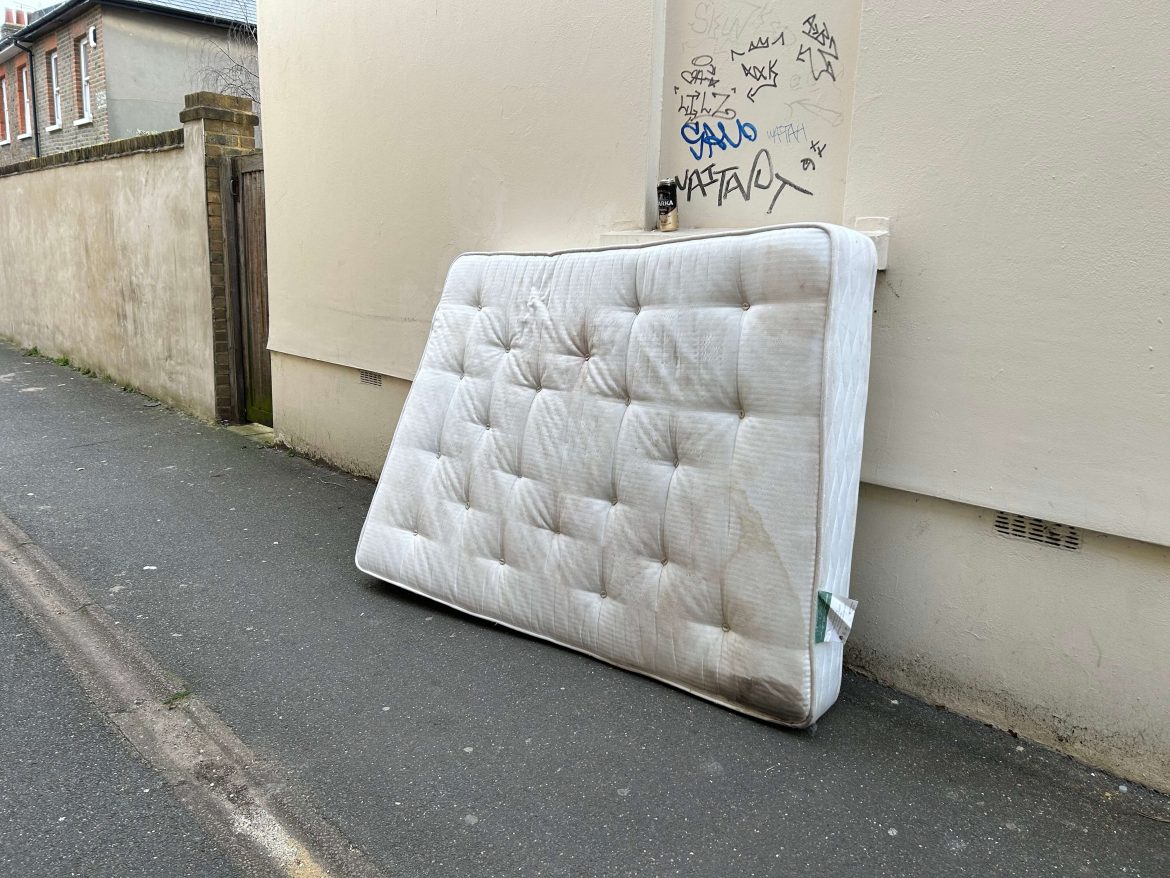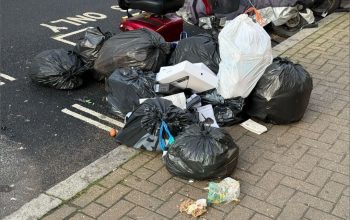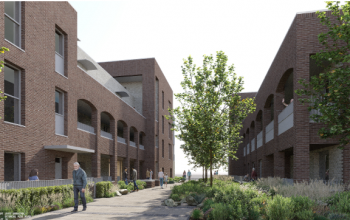Kingston Council has deemed its high-tech fly-tipping prevention cameras “very successful” but local residents’ groups claim there is still more to do.
According to government data on fly-tipping, total incidents in the borough have nearly doubled between 2020/21 and 2021/22 with 4,363 total incidents in the past year.
However, since the introduction of cameras in the winter of 2021, fly-tipping has reduced drastically with a noticeable decrease in business and domestic offences, according to Kingston Council data released this year.
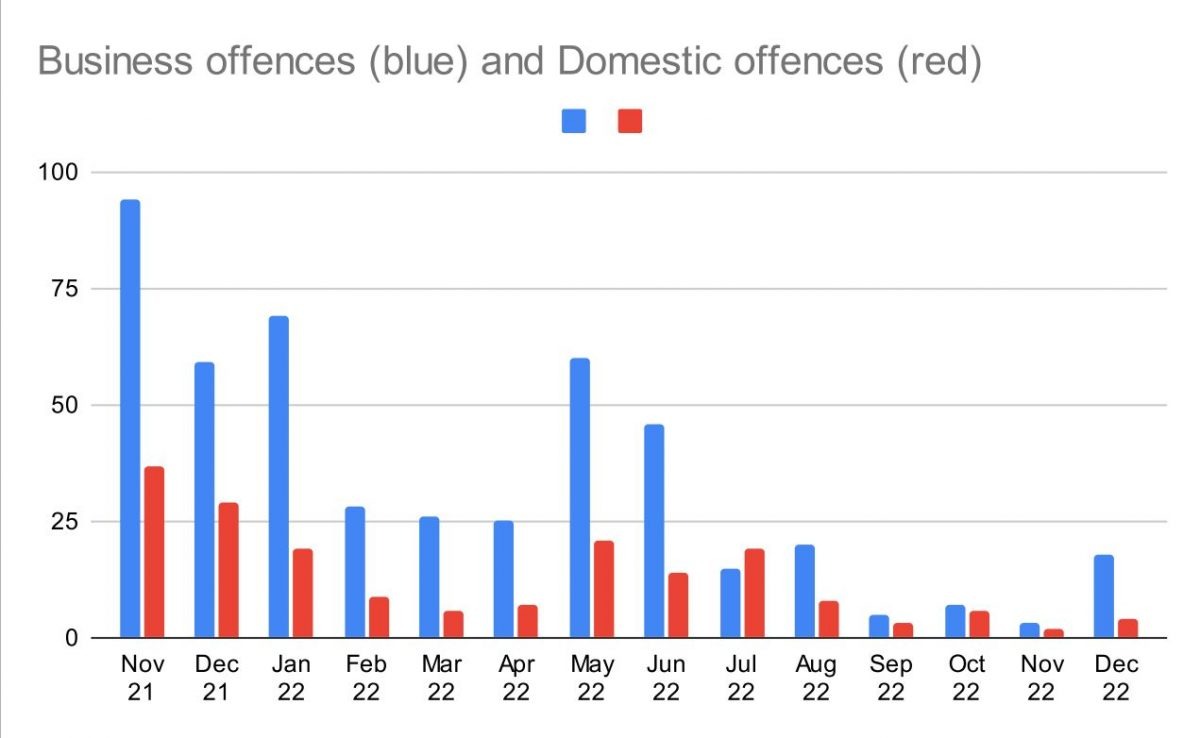
“These cameras have been very successful,” says Kingston Councillor John Sweeney.
“We piloted them in Kingston, and now Vodafone are taking them out all across the country. It’s going to make a big difference in the UK.
“The task was to use technology and innovation to solve council problems. The idea is to reduce it, prevent it and catch people that are responsible for it.”
However, the Kingston Independent Residents Group (KIRG) declare there is still much to do to reduce fly-tipping in the borough.
“We still have members of the public telling us about the large amounts of fly-tipping they see across the borough,” said a KIRG spokesperson.
Local ecologist Alison Kure also claimed there are ongoing problems in areas of Kingston, including the cemetery on Bonner Hill Road.
“If you took a walk there, it looks like one big fly-tip. It’s really quite sad.”
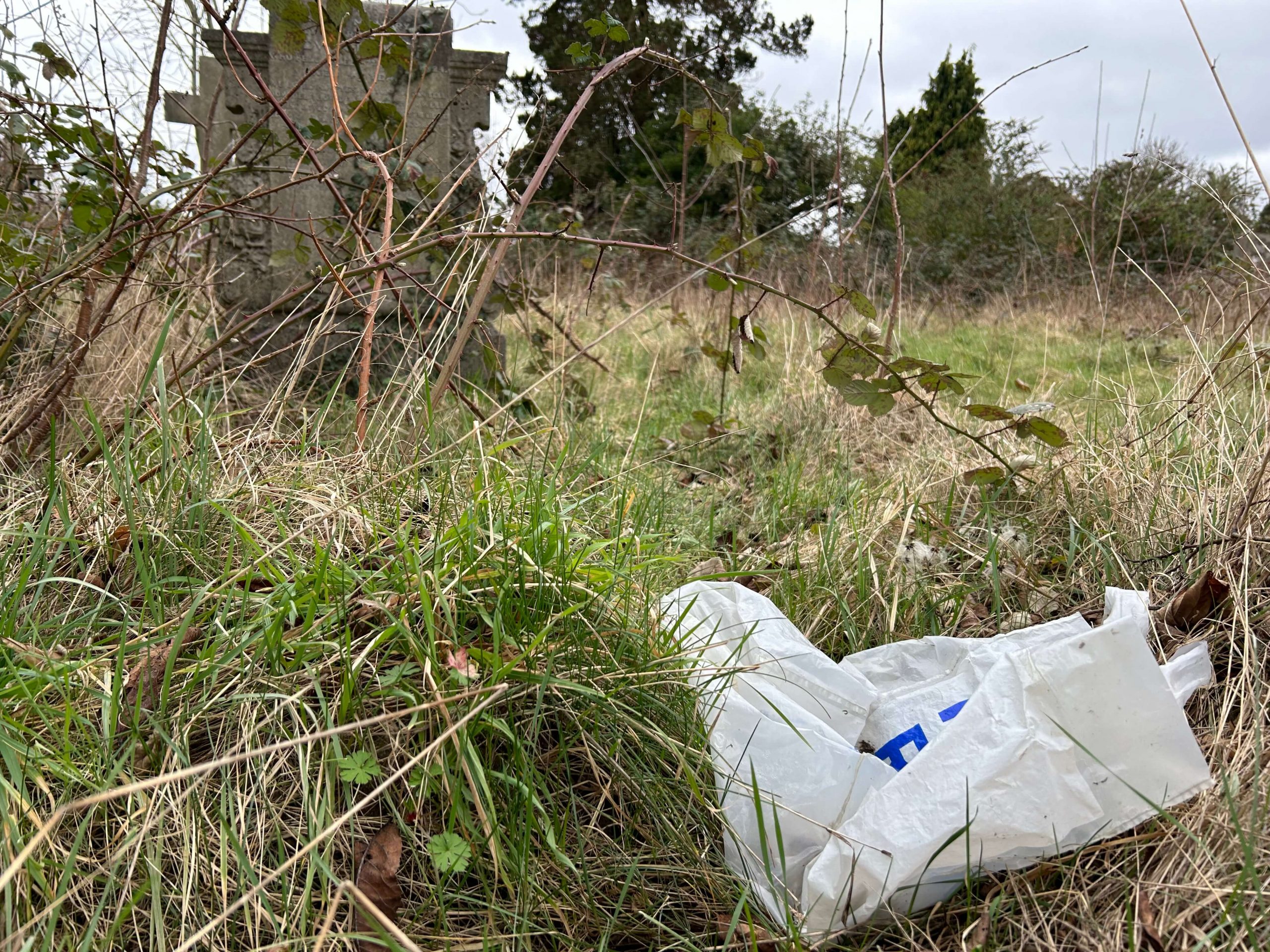
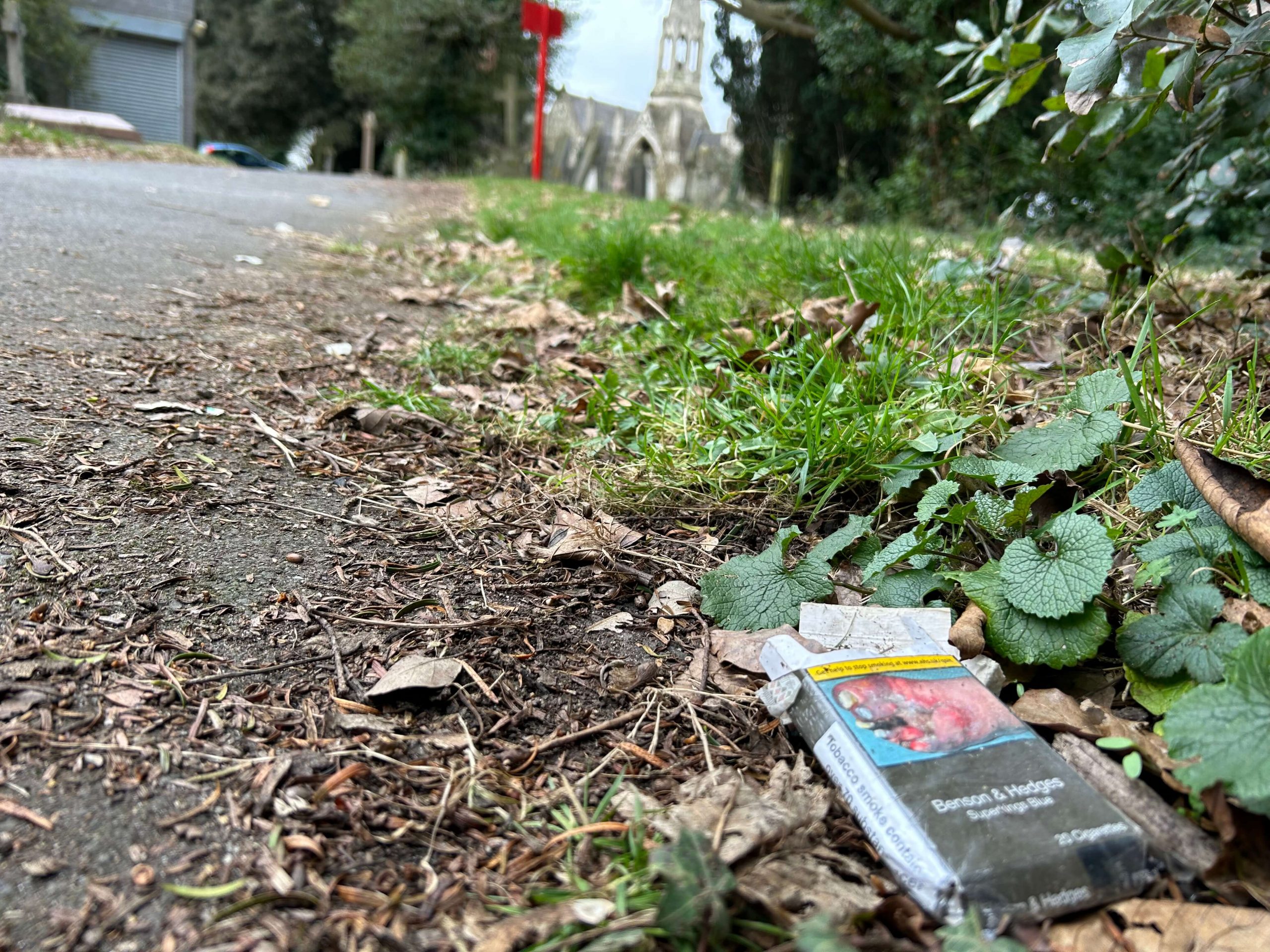
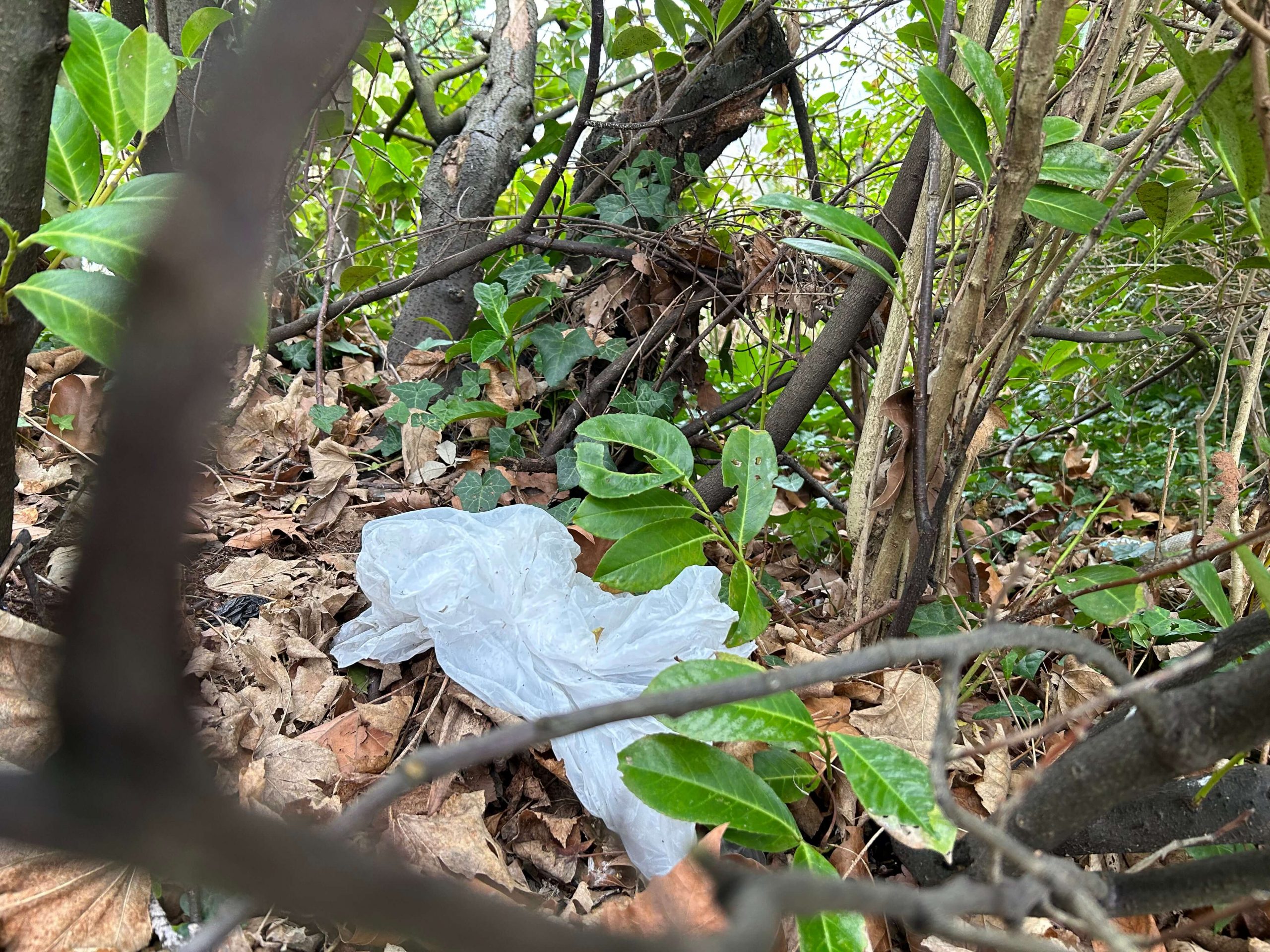
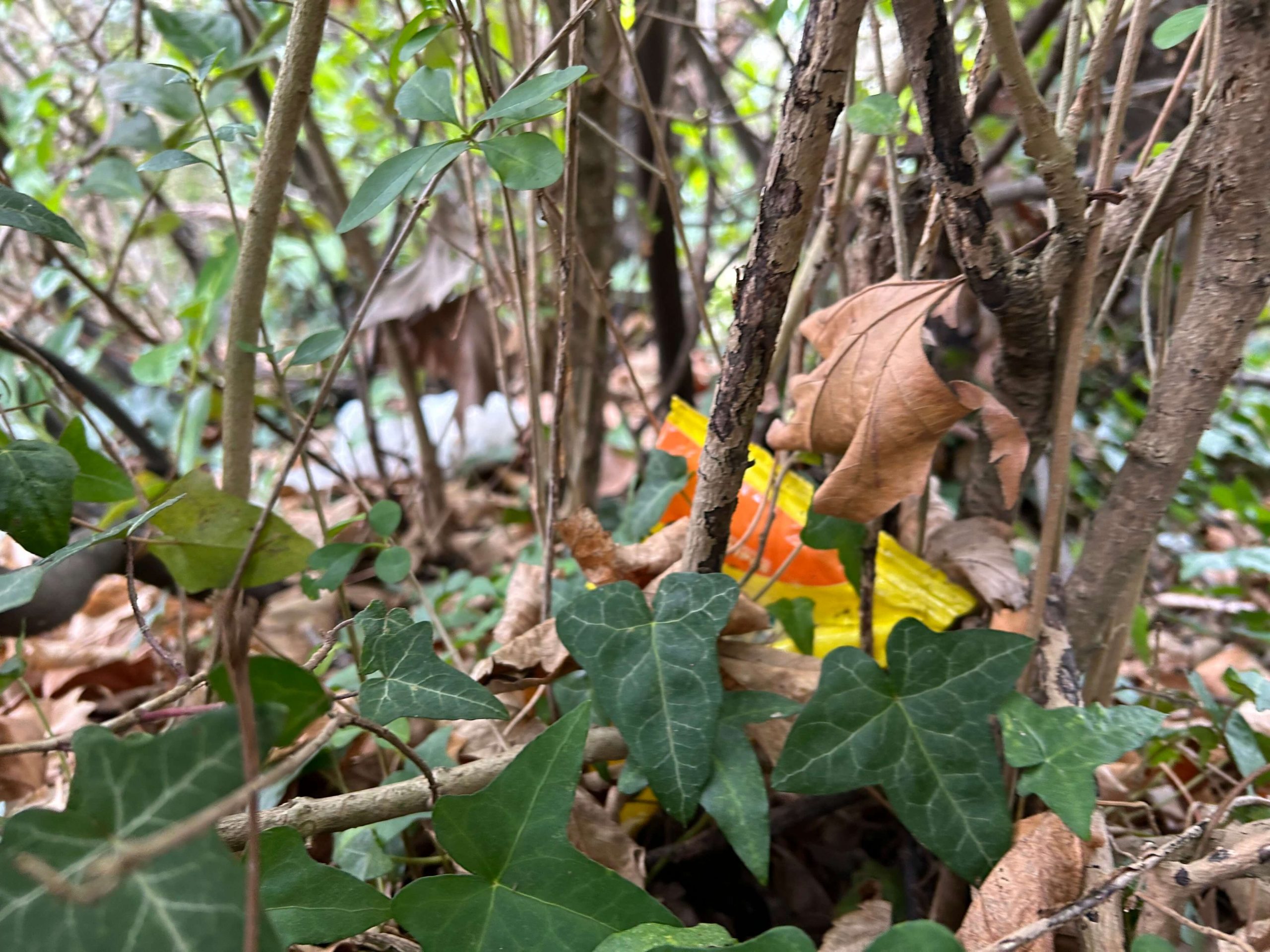
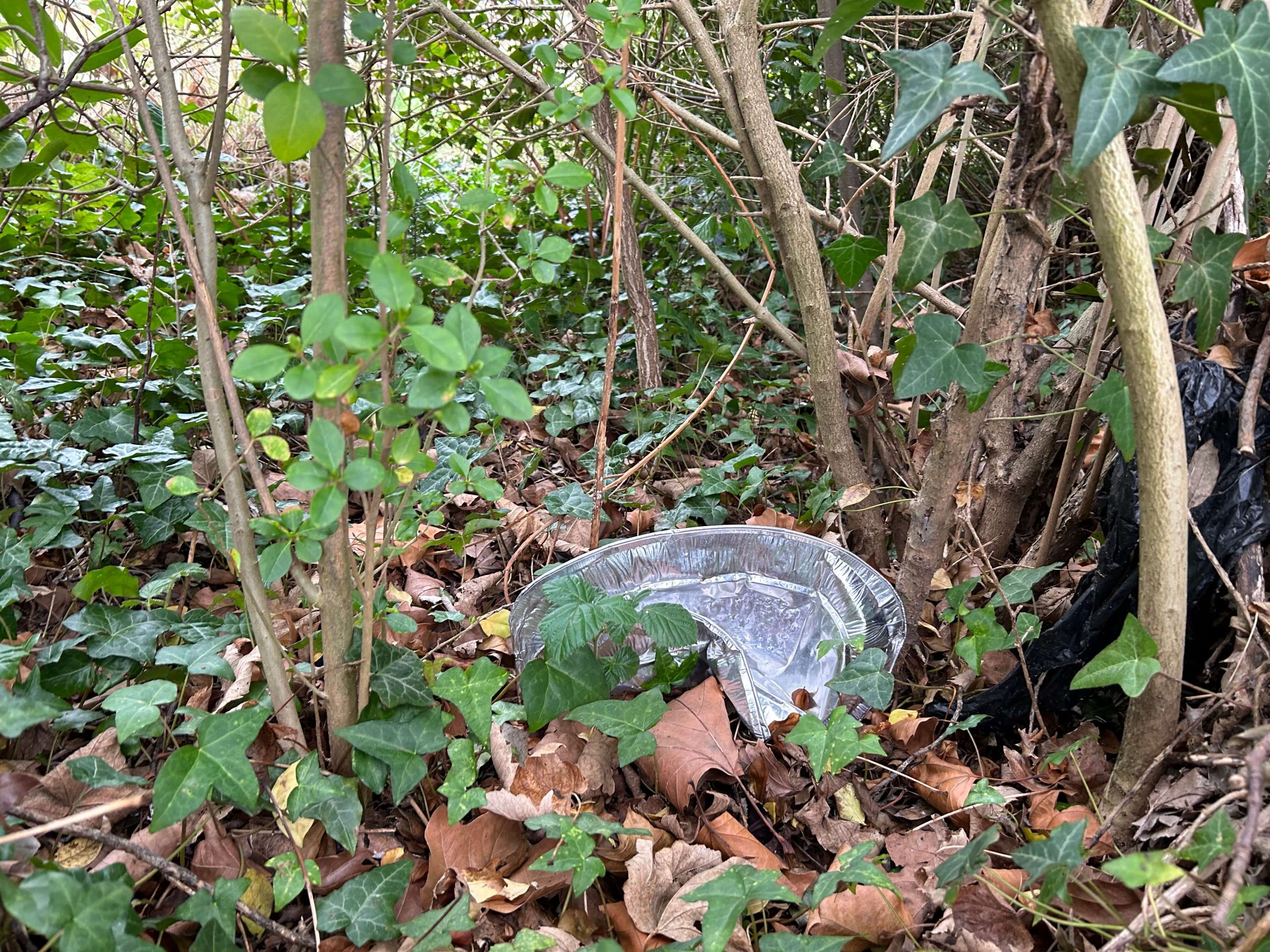
Is the council doing enough?
“Fly-tipping just deflates me,” said Sweeney. “It’s an eyesore and it puts you on a downward trajectory. It’s annoying. You see it and think ‘Oh, another one’.”
Sweeney is the portfolio holder for Business and Leisure for Kingston Council and spearheaded the installation of these cameras.
“We have a limited amount of fly-tipped waste that’s dangerous. But if it does get into rivers and the water supply, then it can impact the environment.
“For me it’s about a sense of pride in place. If you step out your door and it’s full of rubbish, it’s like no one else cares.
“That causes a further cycle of vandalism and crime. If you can keep an area clean and tidy then people who live in that area start to take pride in their place.”
However, KIRG insist that the council is not doing enough to tackle the problem.
“It is still a major issue as fly-tipping is near many gateways into the borough which visitors can see,” a KIRG spokesperson said.
“Yet, the council talks about wanting to ‘protect and enhance our heritage and natural environment’ and to make the borough an inviting place to come to.”
Kure notes ongoing difficulties around the clean-up of fly-tipping in the borough, suggesting that confusion between outsourced contractors is causing delays.
“There’s litter in parks and there’s litter in highways and they’re done by different contractors. They’ll argue between themselves as to who’s responsible.
“The area at Hogsmill Lane where I reported the fly-tipped mattresses in December, they’ve only been picked up in the last week of February.”
Kure also suggests that while the cameras may seem useful, she believes enforcement is the issue.
“It’s all very well having cameras, I’ve seen them with the fly-tipping notice, but we haven’t got the staff to enforce any of this. I wonder if there’s any point,” said Kure.
Sweeney, however, confirmed that the council have employed two enforcement officers to deal with fly-tipping.
While Sweeney admits that Kingston is one of the lowest London boroughs for total fly-tipping incidents, he believes that in areas of low fly-tipping, residents notice it much more.
How do the council’s cameras work and where are they?
“What the cameras do is to try to reduce and modify the low-level stuff,” said Sweeney.
“Too many people think: ‘it’s OK to slip this rubbish out and put this bag here’. These cameras are mainly a deterrent. If they’re seen on the cameras, the fly-tippers will often be linked to a number plate or an address and then people can go speak to them.”
The cameras were developed by Vodafone and, according to their website, aim to “supply the council with millisecond gaps in an image of set areas and looks for something that the system records as being different than expected.
“When it is something of interest, the council can download all images relating to that sequence and flag it up to their enforcement team to take action.”
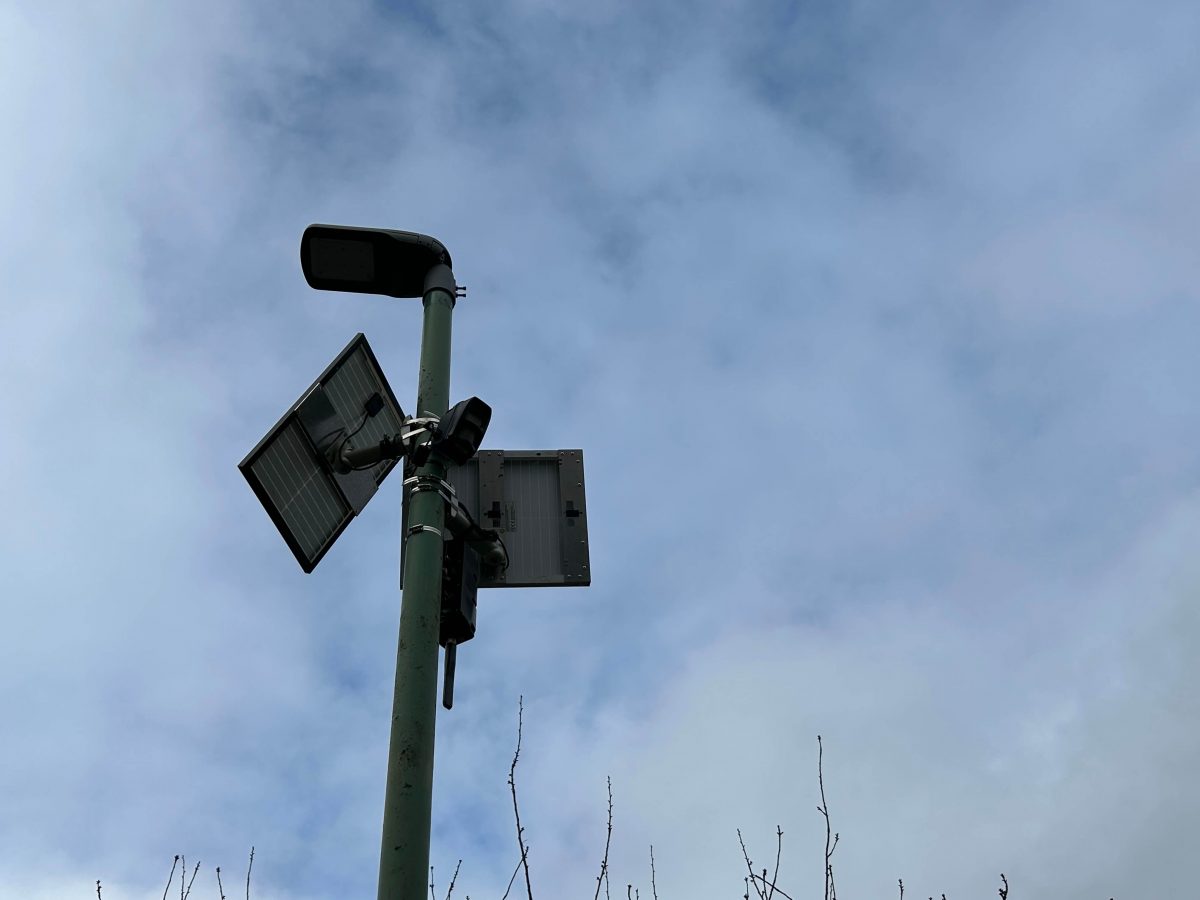
The funding for the cameras came from the ‘Internet of Things’, a project born from the South London Partnership. This partnership brings together five south London boroughs – Kingston upon Thames, Croydon, Sutton, Merton and Richmond upon Thames – and aims to promote economic recovery following the Covid-19 pandemic.
Sweeney said: “There’s around 20 cameras in Kingston and we specifically allocated cameras to social housing. They’re in places like the Alpha Road Estate, the Cambridge Road Estate, and New Malden because they have issues there.”
Some areas are not so closely covered, with Kure emphasising that Kingston Cemetery is an area particularly harmed by continual littering and fly-tipping.
Kure said: “Our whole area is a sea of plastic waste, particularly Kingston Cemetery. Plastic and glass shards are left on graves.
“The whole habitat is suffused with plastic and artificial flowers. I frequently go in and pick up lots of broken glass which would do a lot of damage to foxes’ paws and domestic animals.”
Why do Kingston residents fly-tip?
“They don’t see it as fly-tipping”, said Sweeney.
“I think a lot of it in Kingston is domestic waste such as unwanted furniture and fridges. These residents may not have access to transport so they can’t dispose of it at a recycling centre.”
Sweeney also emphasises that many fly-tippers feel they may have to resort to illegal waste disposal due to cost of getting get rid of unwanted rubbish.
“They often can’t afford the collection services the council provide as they are often quite expensive. As well as being hard on it, we have to make it easy for people as well.”
The council offer a ‘bulky waste’ collection service where residents can pay to have items including mattresses, sofas and wardrobes removed for a fee – £38 for up to four items and £58 for five to eight items.
“It’s not that we need to clamp down on it and fine everybody, there’s a lot of people who can’t afford to pay the fine,” said Sweeney.
If you have items that need to be legally disposed of, the council offer a guide for disposal here.

